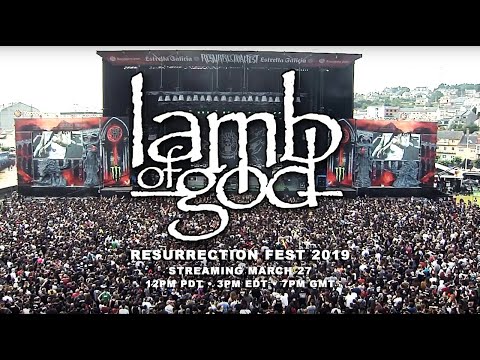NME Music News, Reviews, Videos, Galleries, Tickets and Blogs | NME.COM
It’s almost impossible to imagine what middle America must have made of Little Richard when he first emerged in 1955; this bisexual black guy, covered in make-up, standing up at the piano and banging out songs about bumming. The original lyrics to his seismic – and, really, that’s too weak a word for a song that tore a hole in the space-time continuum and brought the onset of modern popular culture crashing forward – first hit ‘Tutti Frutti’, changed at the behest of record label Specialty, went, jaw-droppingly: “Tutti frutti / Good booty / If it don’t fit – don’t force it / Just grease it / Make it easy.”
Little Richard would be outrageous and boundary pushing if he was still making music in 2020, more than six decades after he conjured the spirit of freedom and rebellion in 10 syllables. When he roared, in the opening moments of ‘Tutti Frutti’, “A-wop-bop-a-loo-bop-a-wop-bam-boom!”, it was the big bang that ignited rock’n’roll, the birth of the teenager, the spark that lit the fuse that careered through the sounds of Elvis Presley and The Beatles, and which still courses through the veins of anyone – and anything – hell-bent on resisting the status quo.
Little Richard, who has died at the age of 87, was born Richard Penniman in 1932 in Macon, Georgia. One of 12 children, he earned his nickname due to his diminutive frame, which was not helped by an uneven gait that, some in the local community suggested, gave him an effeminate air. “I look back on my life, comin’ out of Macon, Georgia – I never thought I’d be a superstar, a living legend,” he later admitted. But Little Richard was different from the very start.
His father, Charles “Bud” Penniman, sold moonshine at a bar named the Tip Inn. Richard soaked up the black gospel music from the local church and was taught to play gospel piano by a male musician named Eskew Reeder, Jr., who went by the stage name Esquerita and wore heavy make-up and a flamboyant pompadour wig, which would later become Little Richard’s signature look. He combined these influences – the naughtiness of the bar, the passion of the church and Esquerita’s single-mindedness – with a love of boogie-woogie, which he began to play at traveling vaudeville shows as a teenager.
He spent the early 1950s recording rough blues songs for RCA Camden, a cheapie subsidiary of RCA Records, but it was with the Los Angeles-based Specialty Records that he concocted the rough and raw-edged songs – ‘Tutti Frutti’, Slippin’ and Slidin’’, ‘Lucille’, ‘Rip It Up’ – that would form the blueprint of rock’n’roll. The man who would later hail himself ‘the King and Queen of rock’n’roll’ was washing dishes at the Greyhound bus station in Macon when he was summoned to Specialty’s New Orleans studio to lay down the tracks.

His 1957 debut album, ‘Here’s Little Richard’, which changed and reshaped music forever, ran to just 28 minutes and 30 seconds. It reached Number 13 on the Billboard Pop Albums chart, gave him two hit singles in ‘Long Tall Sally’ and ‘Jenny Jenny’ (‘Tutti Frutti’ had already reached Number Two on the Billboard Rhythm and Blues chart) and led to his eponymous 1958 follow-up. By this time, though, he’d already denounced rock’n’roll and declared that he would dedicate himself to God. Specialty cobbled together the 1958 album ‘The Fabulous Little Richard’ from leftover studio sessions and added on gospel backing vocals to pad out the arrangements.
He claimed that God Himself told him to leave rock’n’roll, sending him a vision of a plane on fire. The prophesy caused him to fly home from his Australian tour 10 days early. Sure enough, the plane he was originally due to catch crashed into the ocean.
By this time he had supped deep from the cup of rock’n’roll: he’d developed a penchant for bisexual orgies and angel dust (the psychedelic drug PCP) and once claimed that he and burlesque dancer Angel Lee, who became his lifelong soulmate, had a threesome with Buddy Holly. “One time Buddy came into my dressing room while I was jacking off with Angel sucking my titty,” he would later tell GQ. “She was doing that to me and Buddy took out his thing… He was having sex with Angel, I was jacking off and Angel was sucking me when they introduced his name on stage. He finished and went to the stage still fastening himself up.”
His initial dalliance with rock’n’roll was short-lived, but in this time he trademarked the musical cornerstones that would inspire others to push boundaries in the decades to come: The Beatles cribbed his “hooo!” vocal tick; Mick Jagger, Richard claimed, borrowed his lithe and suggestive walk, and David Bowie took his deliciously ambivalent approach to gender norms and rode them to the moon and back.
After three gospel records, Little Richard himself returned to rock’n’roll with 1964’s ‘Little Richard Is Back (And ‘There’s A Whole Lotta Shaking Going On!)’, though he would never recapture the reckless abandon that defined those first two albums (who could?). He later became a kind of pop culture curio, watching from afar at the chaos he had unleashed on music; he returned to gospel music and in 1970 became an ordained minister.
Through all this, though, he continued to play with his outrageous reputation, becoming a muse to the filmmaker John Waters, the self-styled ‘Pope of Trash’, and granting eyebrow-raising interviews in which he addressed the rumours around his sexuality. “Sex to me is like a smorgasbord,” he once explained. “Whatever I feel like, I go for… ‘What kind of sexual am I? I am omnisexual!’”. He was still touring as late as 2013, when – ever armed with an eye for the absurd – he claimed ‘a baby aspirin’ saved his life when he suffered a heart attack backstage in Nashville. He denied rumours of his death in 2016, and insisted: “I’m still singing.”

Little Richard didn’t invent rock’n’roll single-handedly – he, Elvis, Chuck Berry and Carl Perkins, all now gone, shared the weight between them – but it was Richard who, more than anyone, embraced the wildness, the raucousness, the contrariness and the untamed personal freedom that rock’n’roll represents.
In the mid-1950s he brought male bisexuality to a mainstream that’s still that not comfortable with the idea, then rejected the label as reductive; he was a founding father of rock’n’roll, then shunned the culture in favour of God. Little Richard fizzed with the transgressive energy that rock’n’roll passed onto punk, and which punk then passed onto hip-hop, the most super-charged and riotous music of the now. The man was volcanic, his red-hot spirit and blazing attitude continuing to burn through popular culture, and we have him to thank for everything. A-wop-bop-a-loo-bop-a-wop-bam-boom.
The post Little Richard 1932 – 2020: the King and Queen of rock’n’roll who gave us everything appeared first on NME Music News, Reviews, Videos, Galleries, Tickets and Blogs | NME.COM.




